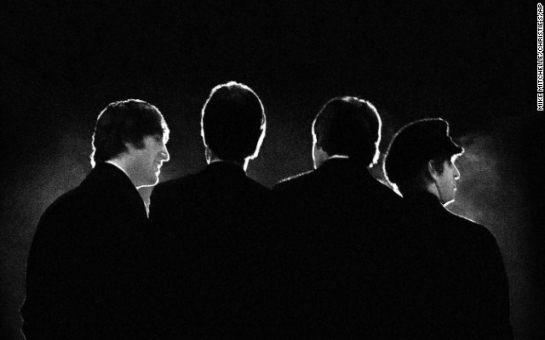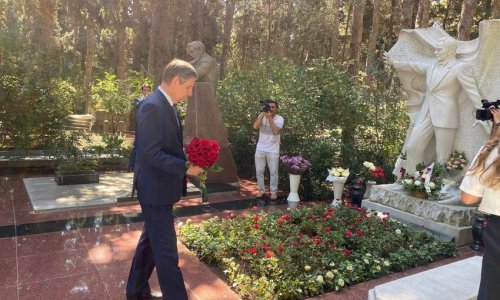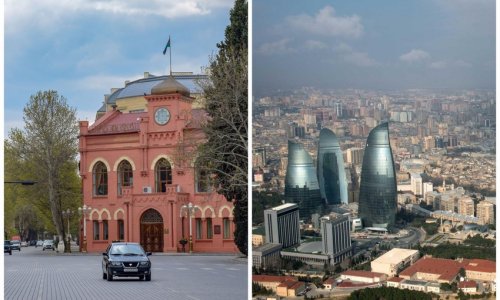Fifty years ago this weekend, a four-piece guitar band from Liverpool touched down at Kennedy airport in New York and changed the course of popular culture in the twentieth century.
That much we can be sure of, and since the days of Beatlemania that guitar band has been credited with changing music, fashion, culture and everything else that really counted in the sixties.The trans-Atlantic entertainment industry is gearing up for an avalanche of tributes and events to commemorate this anniversary. The dyspeptic rock critic Lester Bangs once railed against the never-ending re-release of the Beatles catalog by asking: "I'd like to know what I have missed by not missing the Beatles."The answer over the next few weeks is plenty: concerts, exhibits, panel discussions, documentaries, conferences and a pre-recorded Grammy tribute featuring a "reunion" of Paul and Ringo.For that generation lucky enough to be swept along by Beatlemania, it was a unique event, a turning point for some.There are still plenty of Americans of a certain age who can tell you exactly what happened when they first saw the Beatles on The Ed Sullivan Show that chilly February night: "I was two inches from the screen, screaming."The run-up to this anniversary feels a little like the preparations for the Beatles arrival in 1964, when there was a continual stream of tidbits, teasers and promotions which announced "The Beatles are Coming!"But instead of radio bulletins, high-school gossip, and those flyers that Capitol records distributed to record stores nationwide, this time the news comes to us on mobile phones and lap tops, in web casts and posts on the internet.If you miss the rebroadcast of the Ed Sullivan show this weekend you can easily retrieve it from numerous sites on the world wide web, but back in 1964 you had to wait a whole week for the next Ed Sullivan Show. This of course added to the tension and increased the expectation of another television event which could not be missed.If a note of self-congratulation enters into the celebrations, you can hardly blame the record and television companies for waxing nostalgic for a time when Americans were locked into watching three channels and still buying records.In the fractured and endlessly expanding digital world, nobody will be able to recreate the excitement of Beatlemania because it is no longer possible to completely command the media as the Beatles did back in 1964.The triumph of Beatlemania was essentially a triumph of the record -- the seven inch vinyl disc -- and a demonstration of its potency in diffusing culture and creating value.Beatlemania's anniversary might be the time to mark an end of that era, when records were something you treasured. In the digital world sound recordings are cheap and disposable; you won't be able to relive the giddy excitement of returning home with that priceless copy of "I Want to Hold Your Hand" with an MP3 download.The anniversary of Beatlemania will doubtless see more praise heaped on the musicians and their timeless music. But who were the architects of Beatlemania?Brian Epstein planned the campaign, perfected the look and made the deals (some strokes of genius, others not). Above all he saw the American market as the pinnacle of success: "We knew that America would make us or break us as world stars...In fact, she made us."How ironic that what began as an exercise in American exceptionalism ended in a "British Invasion" of imported music, fashion and design that swept all before it and made the sixties look and sound like the sixties.Beatlemania marked the ascendancy of British-based television producers who created a new type of music program -- live, frenetic, engaging -- and made the Beatles its most able practitioners.Beatlemania was powered by radio: not crystal-clear broadcasts from corporate headquarters but crackling, crummy AM, with crazed disc jockeys like Murray the K providing a running commentary of Beatlemania and whipping the fans into a frenzy.Those tiny transistor radios that the girls carried with them connected them to a larger community of Beatle lovers, a radio family who dressed alike, thought alike and shared the same obsession.Fifty years on that community sees Beatlemania as a special moment in time. There was an air of expectation in the crowd awaiting the Beatles at Kennedy: "At the airport you could really feel that something was happening...you felt like this was the beginning of the earthquake." And it was.The Beatles touched teenagers like no other band before or after, lifting their fans' gaze above the buying and selling of a commodity to an aura of hope and a state of transcendence. In 1964 music could change your life. The Beatles proved it.(CNN)ANN.Az
Follow us !











